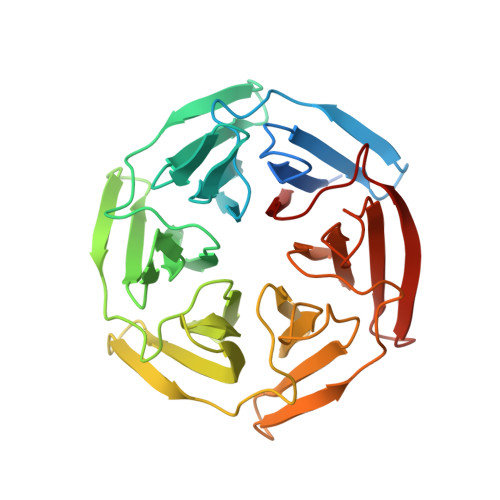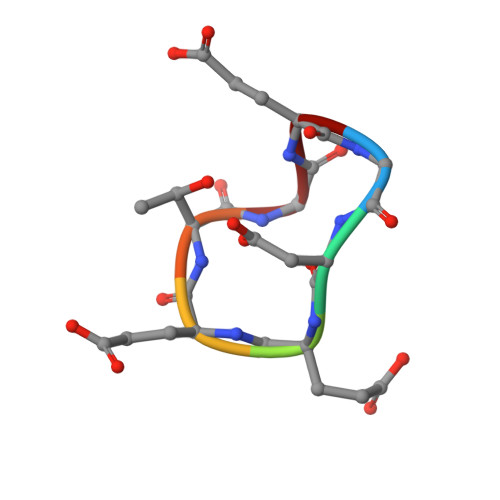Crystal-Contact Engineering to Obtain a Crystal Form of the Kelch Domain of Human Keap1 Suitable for Ligand-Soaking Experiments.
Horer, S., Reinert, D., Ostmann, K., Hoevels, Y., Nar, H.(2013) Acta Crystallogr Sect F Struct Biol Cryst Commun 69: 592
- PubMed: 23722832
- DOI: https://doi.org/10.1107/S174430911301124X
- Primary Citation of Related Structures:
3ZGC, 3ZGD - PubMed Abstract:
Keap1 is a substrate adaptor protein for a Cul3-dependent ubiquitin ligase complex and plays an important role in the cellular response to oxidative stress. It binds Nrf2 with its Kelch domain and thus triggers the ubiquitinylation and degradation of Nrf2. Oxidative stress prevents the degradation of Nrf2 and leads to the activation of cytoprotective genes. Therefore, Keap1 is an attractive drug target in inflammatory diseases. The support of a medicinal chemistry effort by structural research requires a robust crystallization system in which the crystals are preferably suited for performing soaking experiments. This facilitates the generation of protein-ligand complexes in a routine and high-throughput manner. The structure of human Keap1 has been described previously. In this crystal form, however, the binding site for Nrf2 was blocked by a crystal contact. This interaction was analysed and mutations were introduced to disrupt this crystal contact. One double mutation (E540A/E542A) crystallized in a new crystal form in which the binding site for Nrf2 was not blocked and was accessible to small-molecule ligands. The crystal structures of the apo form of the mutated Keap1 Kelch domain (1.98 Å resolution) and of the complex with an Nrf2-derived peptide obtained by soaking (2.20 Å resolution) are reported.
- Department of Lead Identification and Optimization Support, Boehringer Ingelheim Pharma GmbH and Co KG, Birkendorferstrasse 65, 88400 Biberach, Germany.
Organizational Affiliation:


















